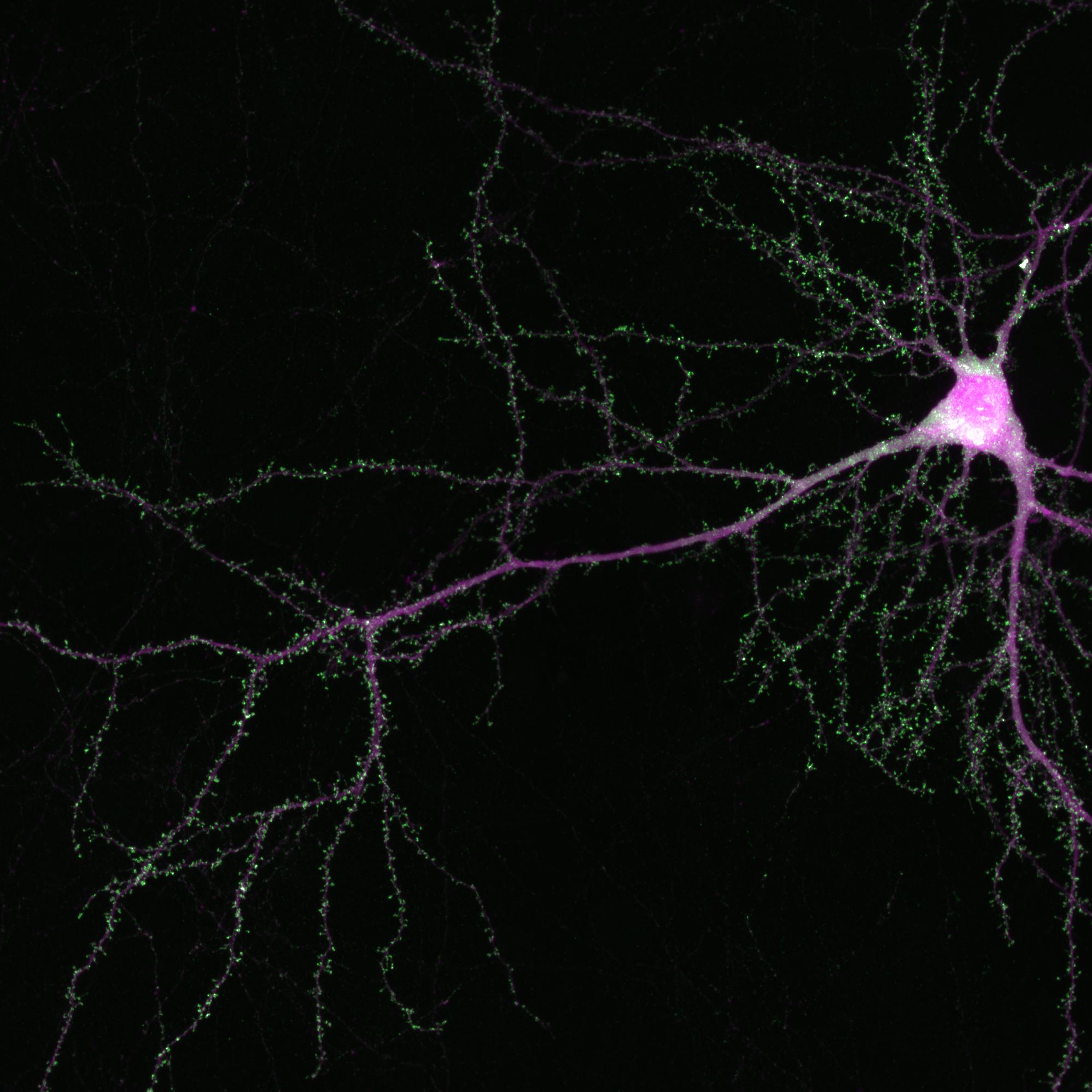Franck Polleux, PhD, a neuroscientist and principal investigator at Columbia’s Mortimer B. Zuckerman Mind Brain Behavior Institute, has received the prestigious 2015 Prix Roger de Spoelberch. The award, which amounts to €750,000 ($850,000), recognizes one European scientist each year for pioneering work in the field of neuroscience.
Dr. Polleux has devoted his career to understanding how our brains developed their extraordinary capacity for complex thinking. He has spent the past 15 years identifying how the billions of connections between cells form in the mammalian brain. Dr. Polleux’s research has uncovered some of the genetic mechanisms that spur the assembly of these connections, which underlie some of the human brain’s enhanced cognitive abilities, such as creativity and language.
The award recognizes more than a decade of work not only by myself but by many members of my laboratory.
“It is a true honor to receive this prize from the Fondation Roger De Spoelberch,” said Dr. Polleux, who is also a professor of neuroscience at Columbia University Medical Center. “The award recognizes more than a decade of work not only by myself but by many members of my laboratory. This prize provides a unique opportunity to continue exploring the cellular and molecular mechanisms that guide the development, maintenance and evolution of brain connectivity.”
Above: Franck Polleux (right) receives the Prize at City House in Lyon from Dr. Jacque Brotchi, president of the Fondation Roger de Spoelberch (Photo courtesy Frank Polleux).
While Dr. Polleux has long explored the mechanisms behind brain development and more recently, brain evolution, he has added another focus: diseases of the brain. This recent foray into disease research is a prime example of the often unexpected and powerful ways in which basic science can shed light on disease.
For example, Dr. Polleux’s foundational work has led to startling insights into Alzheimer’s disease. Several years ago, while working to identify genes responsible for the maintenance of brain-cell connections (known as synapses) in the adult brain, he and his team stumbled upon the protein AMPK. Previous research had suggested that this AMPK activity was higher in the brains of Alzheimer’s patients. However, its role in Alzheimer’s disease progression was unknown.
“In experiments with mice, we found that amyloid beta abnormally boosts AMPK activity in the brain,” said Dr. Polleux. “Further analysis revealed that this abnormally increased AMPK activity is directly tied to the loss of synapses that characterizes the earliest stages of Alzheimer’s disease.”
These findings have opened up fresh avenues of Alzheimer’s research. They suggest an entirely new therapeutic focus — AMPK activity — for treating, or even preventing, the disease’s harmful effects. At present, Dr. Polleux is continuing to investigate this line of research and dissect the chain of events in the brain that leads to overactive AMPK and, ultimately, Alzheimer’s.
The Fondation Roger de Spoelberch is based in Geneva and is dedicated to funding research programs within the brain sciences. The award was presented to Dr. Polleux in a special ceremony on April 28, 2016 in Lyon, France. A native of Lyon, Dr. Polleux earned his PhD in neuroscience from Université Claude Bernard Lyon 1.


